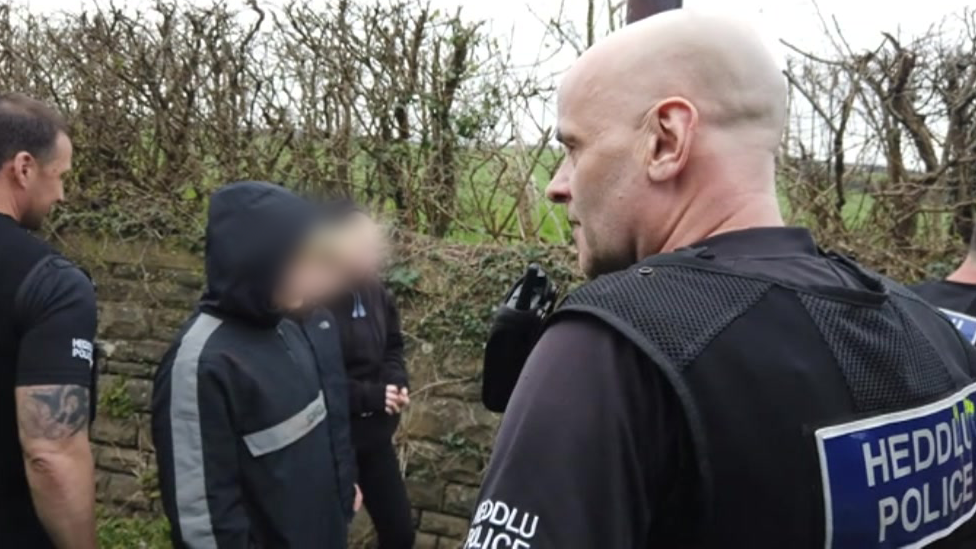Anti-social behaviour 'nightmare' ignored, says report
- Published
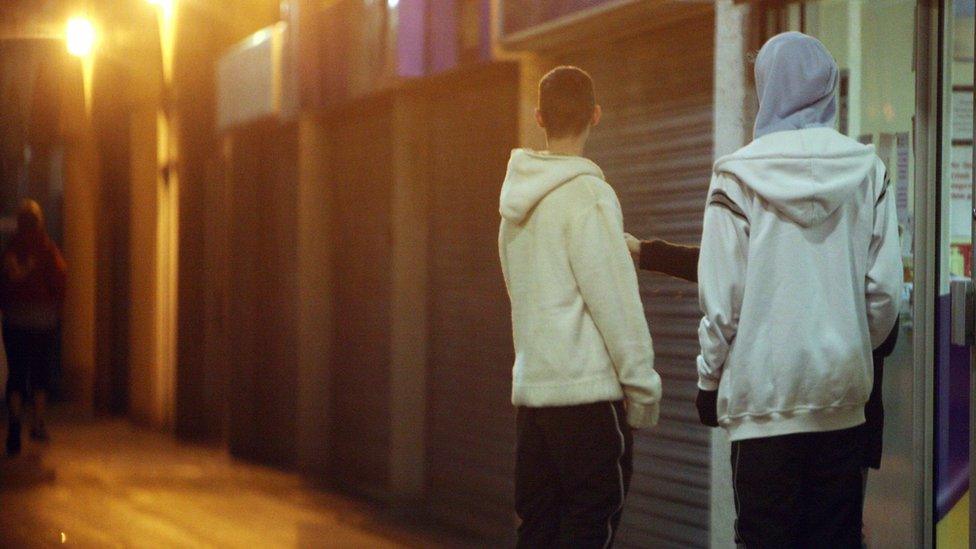
Anti-social behaviour that leaves victims "living a nightmare" is being ignored by authorities across England and Wales, a report warns.
Victims' Commissioner Baroness Newlove said police, local councils and housing providers were downplaying the harm caused by crimes such as vandalism.
Victims being repeatedly targeted were left to "suffer in silence", she said.
Police chiefs and the Local Government Association said they took anti-social behaviour seriously.
But their resources were under strain and they needed more funding to tackle the problem, they said.
Launching the report, called Anti-Social Behaviour: Living a Nightmare, Baroness Newlove said "depressingly little" had changed since her husband Garry was kicked to death outside their home after confronting vandals in 2007.
"It seems implausible that, 12 years later, here I am still raising the issue of anti-social behaviour," she said.
"The feedback from victims is that, all too often, they feel they are being persistently targeted by their perpetrators, and yet persistently ignored by those with the power to prevent and intervene."
Anti-social behaviour is conduct that can cause harassment, alarm or distress.
It includes vandalism, street drinking, prostitution-related activity, and nuisance neighbours, according to the police.uk website, external.
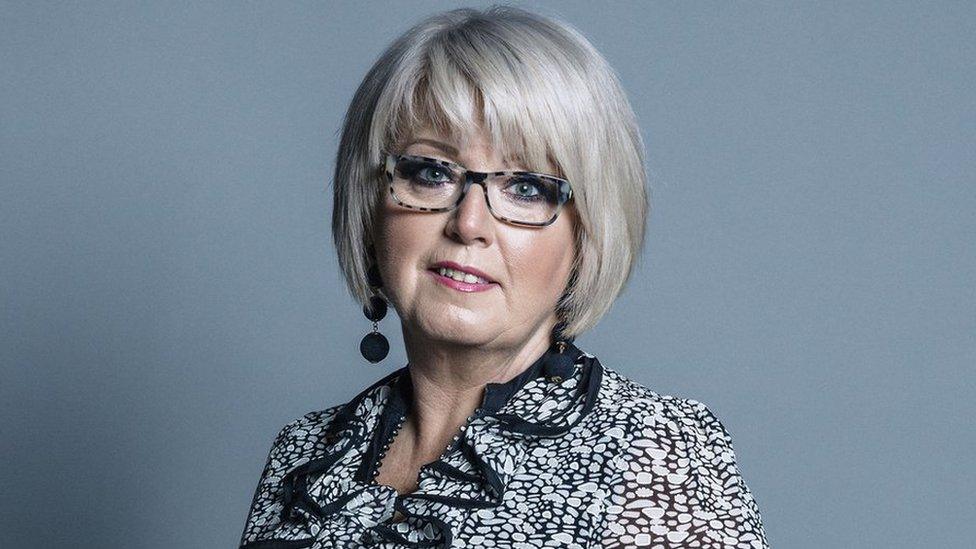
Baroness Newlove, the Victims' Commissioner for England and Wales, says victims are being left to "suffer in silence"
Baroness Newlove said it was "infuriating" that anti-social behaviour was sometimes referred to as "low-level crime".
"That description illustrates very neatly how [anti-social behaviour] is often treated as a series of isolated incidents, rather than taking into account the cumulative effect that it has on its victims."
Her report says anti-social behaviour can cause "immense distress and suffering" to victims, having negative aspects on their mental health, sleep, work, and relationships.

'It's just lawless'
Sarah (not her real name), from Newport in south Wales, says residents in her area "fear for their own safety" after a big increase in prostitution-related activity in recent years.
She describes how pimps and kerb-crawlers have become highly visible during the day - and says that on one occasion a client of a sex worker made "obscene gestures" towards her at 9.30am.
Prostitutes and their clients have also been seen in the playground of a local primary school, she says.
Sarah says she has "lost count" of the number of times she has complained to police and the local council, to no avail.
"It's around the clock. I'm an adult, but when you've got a young girl standing there, she's vulnerable," she said.
"The drugs problem is open. Police drive straight past, unless they have a short-term [anti-crime] drive.
"It's just lawless. I think we're in a containment area."

Written in partnership with Nottingham Trent University and charity ASB Help, the commissioner's report says victims of anti-social behaviour are passed between agencies and face lengthy delays when calling the 101 police non-emergency number.
It also found that a mechanism known as the "community trigger", which allows victims to require agencies to review the response to the anti-social behaviour they reported, was "largely unknown".
Jenny Herrera, from ASB Help, said there were fundamental problems with the mechanism and called for central government to intervene to ensure it was "fit for purpose".
The Crime Survey for England and Wales estimated 37% of adult respondents experienced or witnessed anti-social behaviour in their local area last year, the highest proportion since the question was first asked in 2011-12.
But separate figures show around 1.4 million incidents of anti-social behaviour were recorded by police in 2018, a 16% fall on the previous 12 months.
The Home Office welcomed the Victims' Commissioner's report and said it would consider the recommendations "carefully".
"The government is committed to tackling anti-social behaviour and ensuring victims get the response they deserve," it said.

A graph showing the overall changes in offences and charges in England and Wales
National Police Chiefs' Council lead for Anti-Social Behaviour, Deputy Assistant Commissioner Laurence Taylor, said the police were "only one part of the solution" and they were working with local authorities and other agencies to tackle anti-social behaviour.
"Forces are under increasing strain as they deal with rising crime, demand that is more complex and a raised terror threat with fewer officers," he continued.
"Further long-term funding is needed and we are working with the Home Office and police and crime commissioners to make the case at the next spending review."
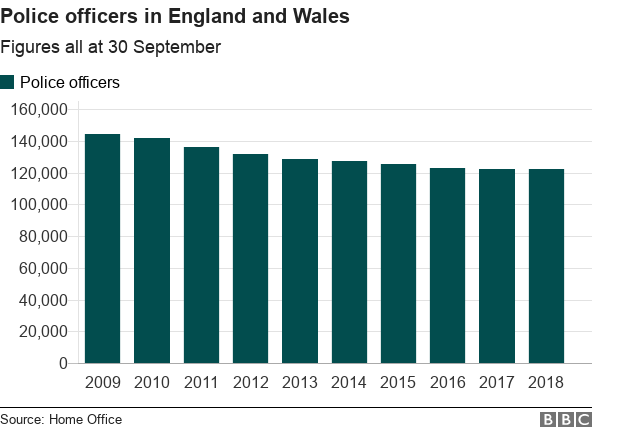
The Local Government Association said: "Councils know people look to them to tackle the anti-social behaviour, which can make a law-abiding resident's life hell or blight an entire neighbourhood.
"It's a role they take extremely seriously but one which is being made increasingly challenging as a result of losing 60p out of every £1 they had from government to spend on services in the past decade."
- Published19 April 2019
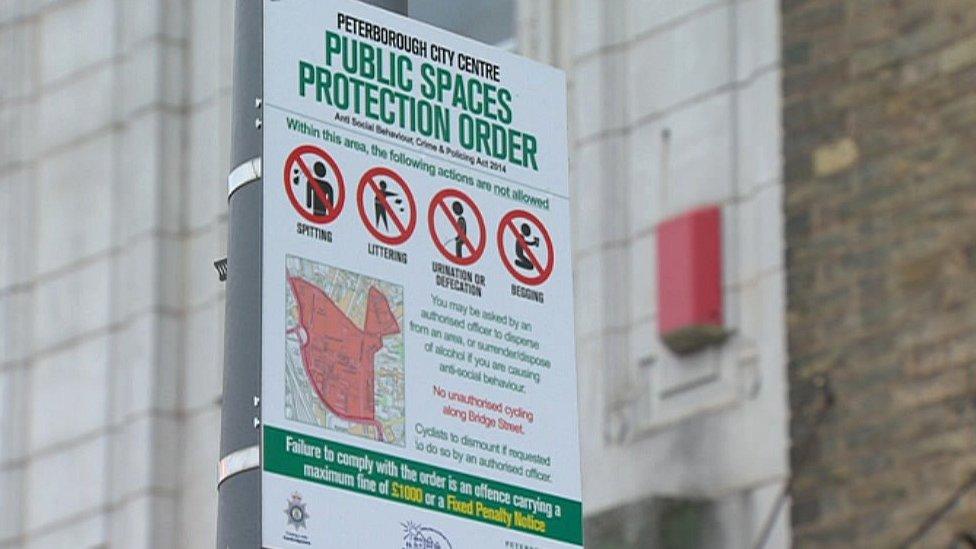
- Published26 April 2019
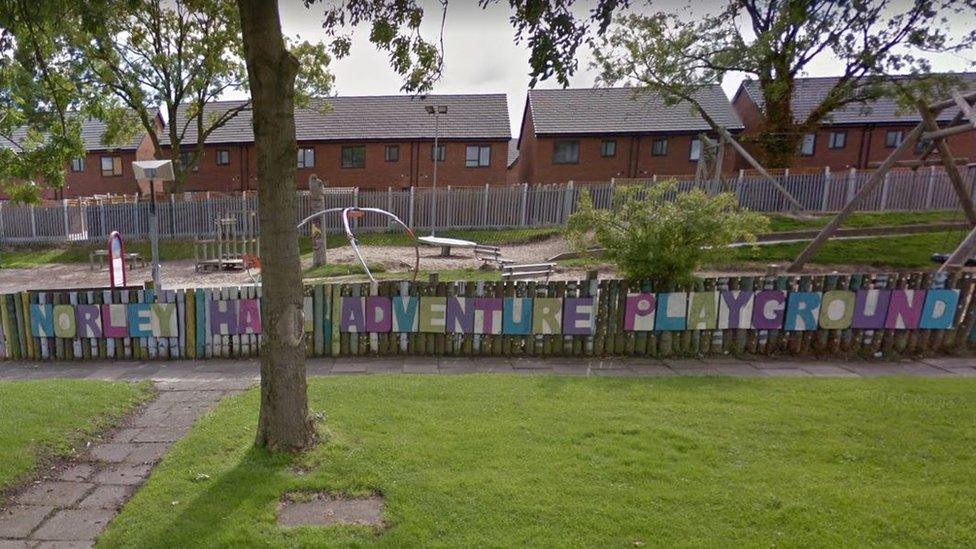
- Published4 April 2019
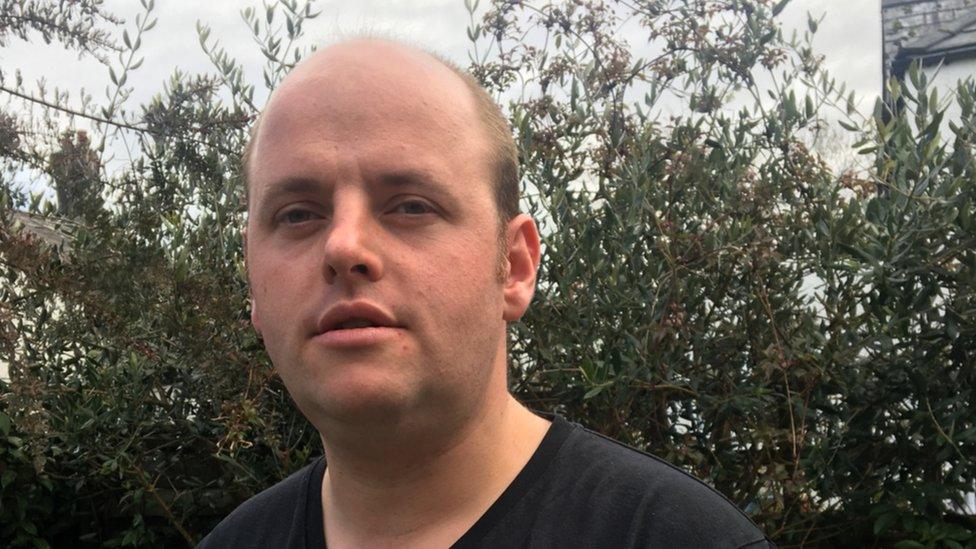
- Published29 March 2019
